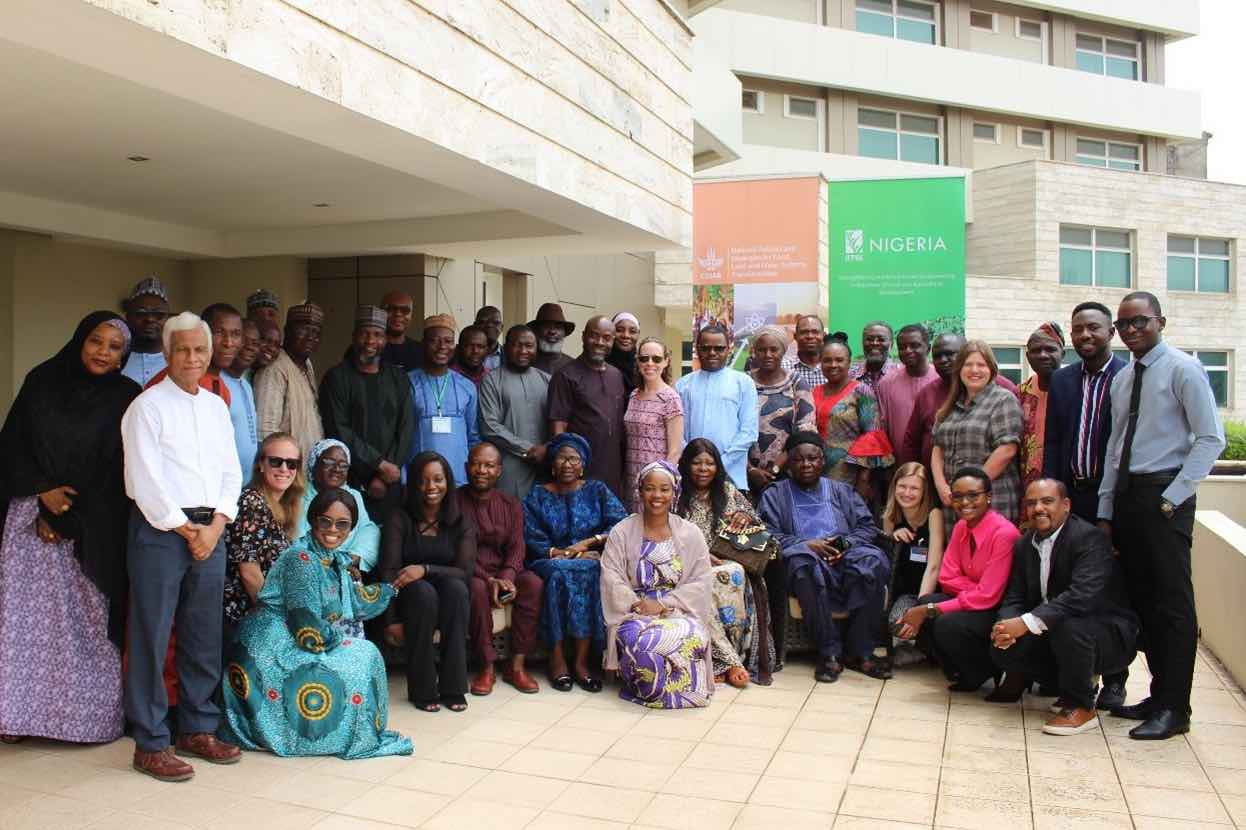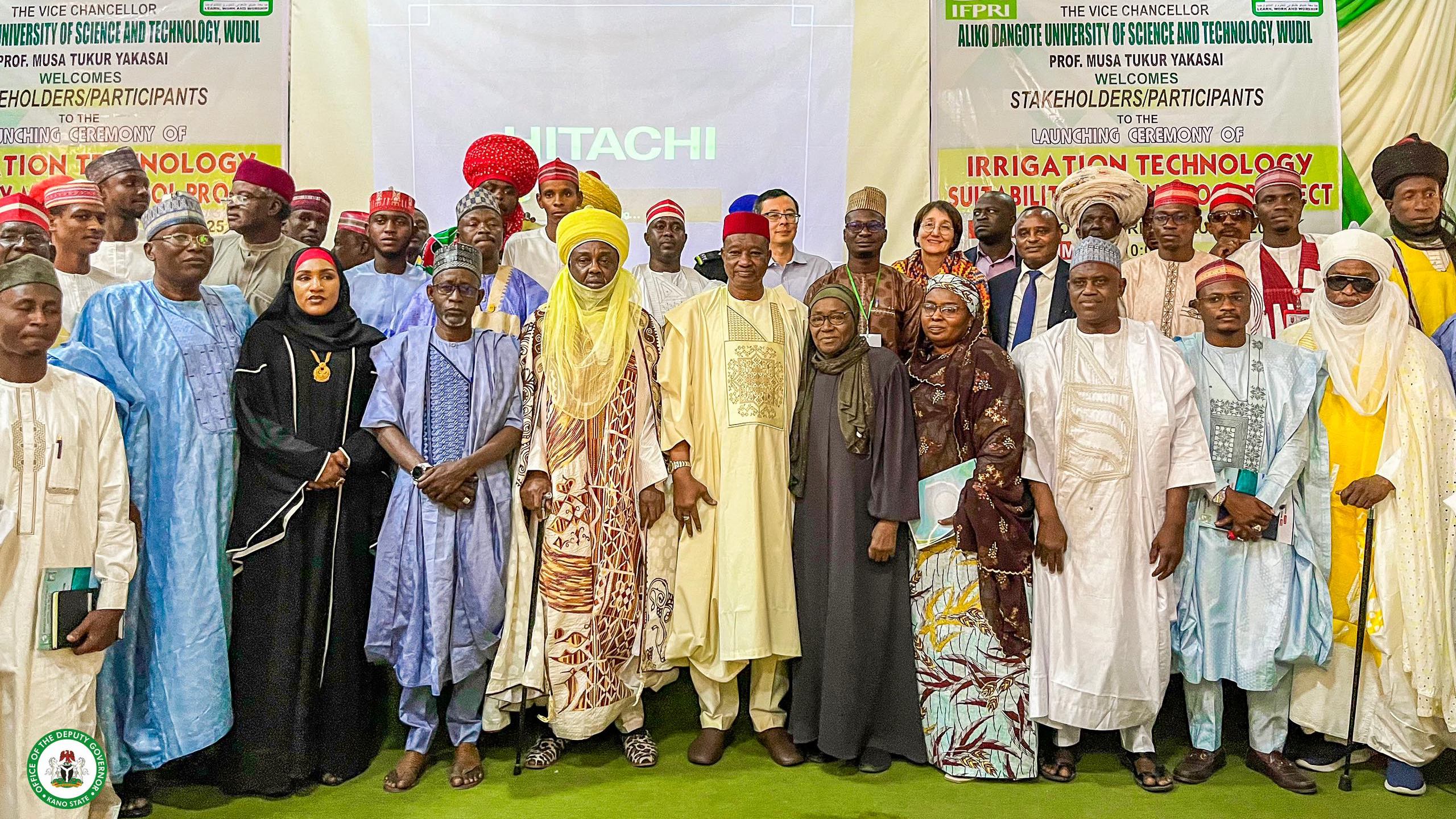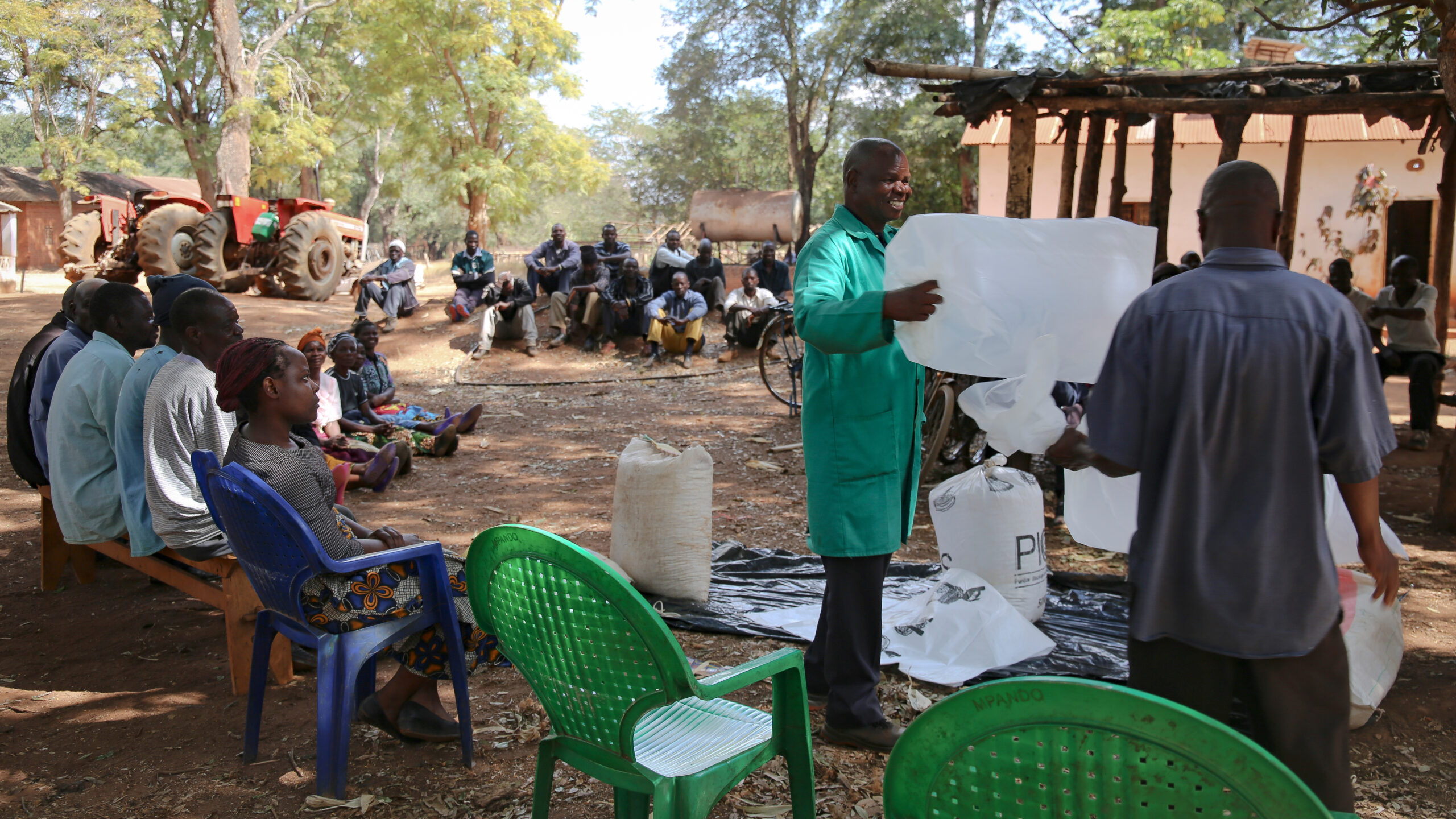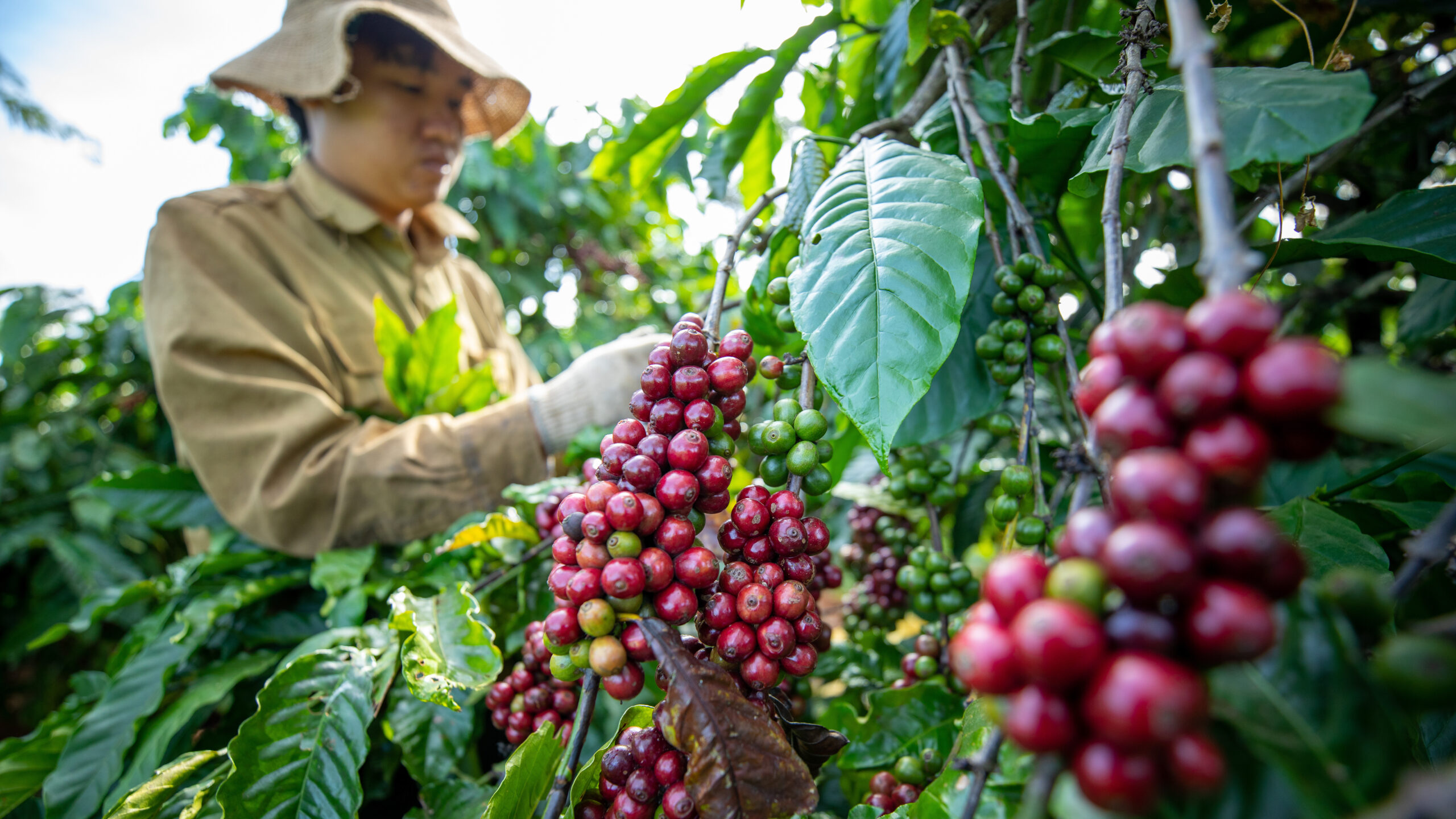On May 12 in Abuja, Nigeria, two CGIAR initiatives—Fragility, Conflict and Migration (FCM) and National Policies and Strategies (NPS)—brought together policymakers, researchers, and representatives from the private sector and civil society to discuss how to advance food systems resilience amid crises while empowering women and youth. The workshop invited research presentations from six other CGIAR research initiatives working in Nigeria and facilitated lively discussion among all. Together, workshop participants learned about results from cutting-edge research and identified evidence gaps and possibilities for new collaborations to fill those gaps.
Ensuring policy coherence amid complex and overlapping crises
In her opening remarks at the workshop, Katrina Kosec, Senior Research Fellow, IFPRI and Lead of the Fragility, Conflict, and Migration Initiative (FCM), introduced FCM as a vehicle for addressing the challenges to livelihood, food, and climate security faced by some of the most vulnerable populations worldwide. FCM, the newest initiative in the CGIAR research portfolio (launched in April 2023 and first presented in Nigeria on May 11), focuses on building climate resilience, promoting gender equity, and fostering social inclusion—in Nigeria and other countries. The need for further research on these big themes emerged clearly from the stakeholders in the workshop.
Kosec framed several big picture questions that will animate FCM’s research in Nigeria and elsewhere going forward: How should Nigeria address food security challenges, exacerbated by the impacts of climate change? What are the best strategies for anticipating shocks and strengthening resilience in the world where compounding crises have become a new normal? And what role does empowering women and youth play in ramping up resilience to shocks and creating more robust agrifood policies?
Kwaw Andam, National Policies and Strategies for Food, Land and Water Systems Transformation (NPS) Nigeria Initiative Lead and Country Program Leader, IFPRI-Nigeria, picked up these questions and described NPS’s approach of building policy coherence, especially between federal and state levels, by integrating policy tools for state-level analysis and responding to policy demand and crisis through a community of policy practice in Nigeria. This approach can ensure that research is demand-driven, responds to crises in real time, and reaches those poised to incorporate it into decision-making.
Six big ideas
The event continued with three topical sessions featuring research from all initiatives. The topics included: “Anticipating Shocks and Strengthening Resilience,” “Empowering Women and Youth,” and “Strengthening Agrifood Policies.” (All presentations are available here).
At least six big ideas emerged from the discussion, although in each case workshop participants raised the need for more research and evidence to put those ideas into practice:
- Strengthening early warning systems can help vulnerable households withstand crises and improve resilience. For example, one project from Northern Nigeria found that a one-time lump sum cash transfer to climate-vulnerable households before a climate shock significantly increased households’ investments in climate resilience and reduced negative coping strategies compared to giving vulnerable households the same cash transfer after a shock. Workshop participants raised the need for more evidence to understand how these types of anticipatory actions could become sustainable and how they could interact with insurance.
- Addressing conflict through policies and interventions is central to key development outcomes including agricultural investments, effective land use, and household food security. Research is needed to understand why conflicts arise, who they affect most, how climate change can exacerbate their effects, and what works to mitigate their harmful effects. IFPRI researchers shared their findings on these questions and recommendations for region-specific interventions and policies. Workshop participants discussed the need for more evidence on linkages between conflict and the food system, as well as pairing of data sources on each; innovative approaches for climate monitoring; and research on linkages between gender and security.
- Breaking down harmful gender norms is essential to everything from ensuring women influence the policy decisions affecting their lives and livelihoods to integrating women in markets and value chains. The need to focus on women’s inclusion in both the public and private sectors came through in both the research presented and the accompanying discussion groups. Participants discussed the potential for greater women’s inclusion in seed markets and how to ensure that agricultural interventions worked for women. Presentations from IFPRI researchers offered tools and ideas for how to raise women’s inclusion in financial services, measure women’s voice in policymaking, and increase women’s voice and agency in their communities.
- Ensuring that youth are economically empowered and that we understand their decision making is critical for navigating crises and building resilience. One study presented at the workshop, for example, analyzed how youth make decisions about rural-rural and rural-urban migration using remote sensing data – and the implications for regional development strategie. Workshop participants also raised the need to better understand how to integrate youth into value chains and create meaningful employment opportunities in the face of the climate crisis.
- Bolstering value chains through better public-private coordination came up as essential for resilience. Seed markets specifically were a big topic of conversation, and both researchers and stakeholders highlighted how better targeting of seed certification could support adoption and how to promote adoption of climate-tolerant seeds.
- Identifying good ideas ready for scaling in crisis-affected contexts is key for long-term resilience. Yet, it can be difficult to know which ideas will work where, and how to select among alternatives when resources are constrained. Social Accounting Matrices (SAMs) can strengthen policy decision-making by highlighting economic tradeoffs between different policy options. IFPRI researchers highglighted anticipated updates to the SAM for Nigeria for decision-making, supported by NPS. Inga Jacobs-Mata from the International Water Management Institute (IWMI) meanwhile introduced an accelerator program to scale innovations for resilience in agrifood systems, supported by FCM.
The importance of partnerships on the ground
The importance of collaborations on the ground, with partners who know the local issues and specifics firsthand, was clearly articulated throughout the discussion. That’s why it was so critical to have stakeholders from Nigeria participate in the workshop, and the goal was achieved with many local partners in the room, including representatives from the Nigerian Government (Ministry of Agriculture, Federal Ministry of Agriculture & Rural Development, and the National Agricultural Seed Council), the private sector (Palladium Nigeria, Premier Seed, Da Allgreen Seeds Nigeria Limited), humanitarian organizations (such as IRC), development, climate, and peace sectors, as well as representatives from NGOs, international organizations (including the World Food Programme), and research organizations (such as the Nigerian Institute of Social and Economic Research and various CGIAR centers).
The workshop helped gather local partners’ viewpoints on the most interesting findings from the presented work, identify any overlooked aspects or areas that require further attention, and explore possibilities for expanding collaborations which would contribute to the six main take-aways.
Discussions concluded with how CGIAR researchers will continue to involve partners in the research, share results, and discuss how CGIAR may best feed into policy processes and decision-making in the region.
Looking ahead
Down the road, we can expect new insights on these questions emerging from the CGIAR research initiatives. Several of the projects presented had just launched, promising new results and insights in 2024, including on how to encourage smallholders to adopt climate-resistant seeds, how to improve women’s financial inclusion, and how to encourage women to participate more in community development, among other topics.
Katrina Kosec is a Senior Research Fellow with IFPRI’s Poverty, Gender, and Inclusion (PGI) Unit; Jordan Kyle is a PGI Research Fellow; Lucia Carrillo is a PGI Research Analyst; Evgeniya Anisimova is Media & Digital Engagement Manager with IFPRI’s Communications and Public Affairs Unit; Omobolanle Onilogbo is a Communications Specialist with IFPRI’s Nigeria office. This post first appeared on the CGIAR website.







